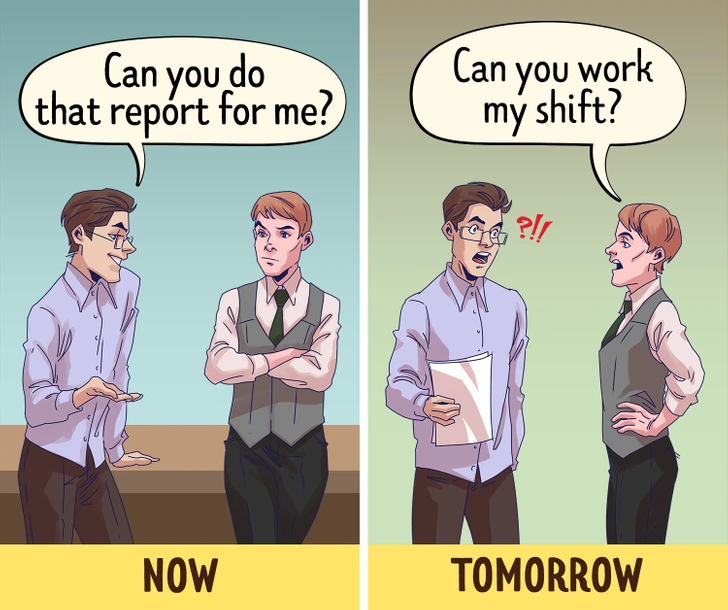Workplace mobbing is a serious and often misunderstood issue. It happens when a group of coworkers targets an individual through bullying, exclusion, or psychological harassment. Over time, this behavior can take a major toll on a person’s mental health, productivity, and even career trajectory.
1. Stay Calm and Disengage from the Drama

Toxic coworkers often look for emotional reactions—they feed off conflict, manipulation, or chaos. When targeted, it’s easy to get caught up in the negativity. But the most powerful first step is to disengage.
This doesn’t mean being passive or ignoring the issue. It means refusing to match their energy. Don’t argue, don’t retaliate, and don’t gossip. Instead, respond calmly, with minimal emotion. Practice neutral, professional language and keep interactions brief and focused on work.
Video:
Workplace MOBBING: Survival TIPS
Over time, your calm approach sends a strong message: you’re not easily manipulated, and you’re not playing into the drama. This strategy often discourages toxic behavior by removing its source of fuel.
2. Set and Communicate Clear Boundaries

Boundaries are your personal lines of protection—and when respected, they protect both your mental space and your workflow.
If a coworker is overstepping through gossip, passive-aggressive remarks, or micromanagement, don’t let the behavior slide. Create space when possible, whether physically or through digital communication limits. When you must engage, be direct but respectful.
For example, you might say, “I’d prefer to focus on work and avoid personal discussions,” or “Let’s keep this conversation productive.” Over time, consistently enforced boundaries can shift how others interact with you and may encourage more professional behavior.
3. Prioritize Your Mental and Physical Well-Being

Toxic workplace dynamics don’t just impact your mood—they can affect your sleep, focus, and even immune system. That’s why prioritizing your well-being is crucial, especially if you’re the target of workplace mobbing.
Start by monitoring your stress levels. Are you feeling constantly drained or anxious? Take note of when and how those feelings occur.
Incorporate simple daily practices like:
- Taking short walks during breaks
- Practicing deep breathing or mindfulness techniques
- Journaling or reflecting after work to process your thoughts
Taking care of your body and mind strengthens your resilience. A healthy routine empowers you to maintain your performance and productivity, even in difficult circumstances.
4. Learn How to Engage Your Organization’s Support Systems

Many workplaces have procedures in place to deal with bullying and harassment—even if they’re not always visible. It’s important to understand what support your organization offers and how to use it wisely.
Start informally if possible. You can:
- Speak with a direct supervisor about the situation
- Request mediation or team coaching
- Encourage team-building sessions or facilitated discussions
Video:
Got a workplace bully? Do this next
If the harassment escalates or continues despite informal efforts, don’t hesitate to take formal action. Contact your HR department to document the issue. Share factual, detailed accounts—including dates, times, and witnesses if possible. Some companies bring in external investigators to ensure objectivity.
Although formal investigations can feel intimidating, detailed documentation often strengthens your case. If needed, seek support from legal professionals or unions to ensure your rights are protected.
5. Avoid Taking On Too Much—Manage Your Workload

When dealing with workplace mobbing, your energy is already being drained by stress. Taking on excessive responsibilities can lead to burnout, making you even more vulnerable.
Evaluate your current workload. Are you saying “yes” too often to avoid conflict? Are others dumping tasks on you unfairly? Learn to prioritize what truly matters and speak up when your limits are being stretched.
Use clear, professional communication when setting limits. Try something like, “I’m currently at capacity, but I can take this on next week,” or “Let’s prioritize based on deadlines.” By protecting your time and energy, you help maintain your well-being and send a message that you won’t be exploited.
Remember, it’s your employer’s responsibility to ensure a fair workload and healthy work-life balance for all employees.
6. Be Assertive and Speak Up

One of the most empowering steps you can take against workplace mobbing is to be assertive. Toxic individuals often target those they perceive as passive or unlikely to push back. But when you communicate firmly and professionally, you disrupt that pattern.
Address behavior in real time. If someone crosses a line, calmly say, “That comment was inappropriate,” or “Let’s keep this respectful.” You don’t need to be confrontational—just clear and confident.
Also, don’t be afraid to name what’s happening. Telling a manager, “I’m experiencing bullying and it’s affecting my work,” can initiate the change needed to protect yourself. Silence often protects bullies. Speaking up weakens their power and invites support.
Final Thoughts: Take Control and Reclaim Your Power
Workplace mobbing is harmful, but it doesn’t have to define your experience. By using these strategies—staying calm, setting boundaries, protecting your well-being, seeking support, managing workload, and being assertive—you take control of your environment.
Your mental health, career, and peace of mind matter. You deserve a respectful, professional work setting where you can thrive. And when you’re proactive, informed, and resilient, you’re far more equipped to handle even the most challenging workplace situations.


